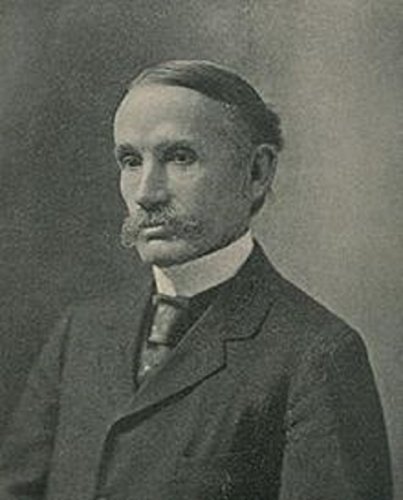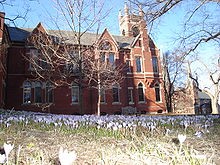
John Bates Clark was a neoclassical economic who contributed to marginalism and is considered one of the greatest American economists.
Below is an excerpt from a biography of John Bates Clark included with our books.
| Title | Published |
|---|---|
| The Philosophy of Wealth | 1886 |
| The Distribution of Wealth | 1899 |
John Bates Clark was born on January 26, 1847 in Providence, Rhode Island, U.S.A.
Clark was originated from New England Puritans and was raised in Providence, Rhode Island. His father was a modestly successful retailer in Providence, Rhode Island and later moved to Minnesota to start up a small plow business.
John Clark graduated from Amherst College, in Massachusetts, at the age of 25.


From 1872 to 1875, John Clark attended the University of Zurich and the University of Heidelberg where he studied under Karl Knies.
Returning to the United States, John Clark married Myra Smith and joined the faculty of Carleton College.
John Clark wrote the essays that later became The Philosophy of Wealth during the tenure at Carleton College. His most brilliant student at Carleton was Thorstein Veblen.
In 1881 Clark went to Smith College where he taught economics until 1893.
John Clark was active in forming the American Economic Association in 1885 and was its third president. During this time at Smith College, he formed a lifelong friendship with Franklin H. Giddings.
John Clark presented his marginal productivity theory at the session of the American Economic Association. From 1893 to 1895 he taught full-time at Amherst. Clark also lectured at Johns Hopkins, and in 1895 he joined the faculty of political science at Columbia University. His more mature works appeared while he was at Columbia.



After the Carnegie Endowment for International Peace was established, John Clark was chosen, in 1911, to head its division of economics and history. This post he held until his final retirement in 1923, continuing limited lecturing in economics at Columbia.
John Clark published his famous Distribution of Wealth in 1899 and Essentials of Economic Theory published in 1907.
John Clark published two small but influential volumes, The Control of Trusts in 1901 and The Problem of Monopoly in 1904. His ideas in the two books were reflected in the part of the antitrust legislation of 1914 that included the prohibition of unfair competition and in the establishment of a Fair Trade Commission.
Clark’s last publication was A Tender of Peace in 1935 and was a brief plea for a League of Nations with sufficient power and resolution to enforce peace.
Clark died at 91 in March 1938, the year before World War II. After his death, The John Bates Clark Medal, one of the most prestigious awards in the field of economics, is named after him by the American Economic Association.
John Bates Clark Medal next to Noble Prize Medal for Economics is one of the most prestigious awards in the field of economics.